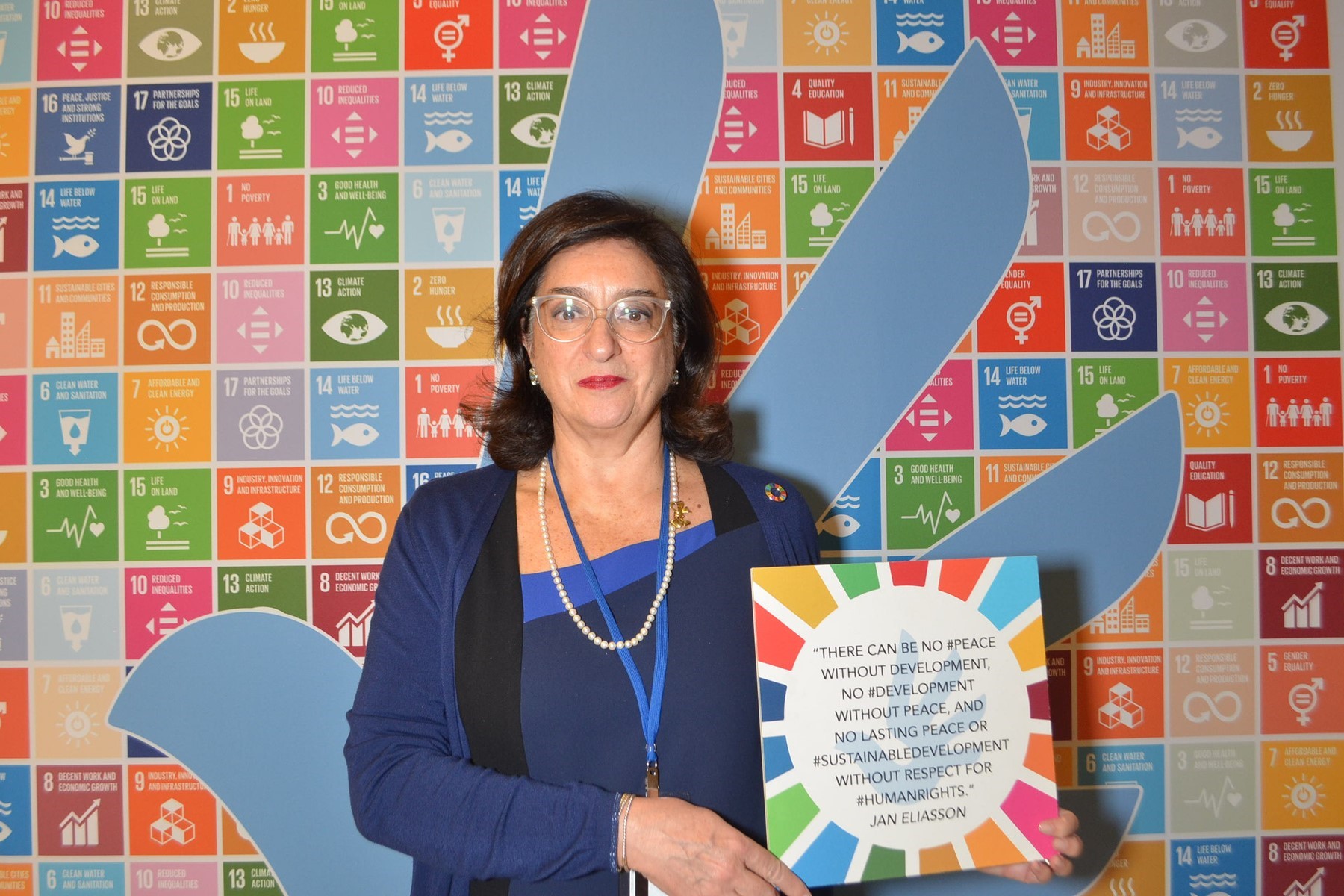Digital Cooperation Organization (DCO) convened Ministers and delegates from UN member states at UNGA side event to discuss ‘Shaping an Inclusive Digital Age.’
First event during UNGA held by seven-member global bloc spanning Africa, the Middle East and South Asia, 80% of whose 480 million population are under the age of 35.
The Digital Cooperation Organization (DCO), a global multilateral body working to strengthen collaboration towards the sustainable and inclusive growth of the global digital economy, today held a high-level side event as part of the ongoing 76th UN General Assembly. Speakers at the virtual event included the UN Assistant Secretary-General and Officer-in-Charge of the Office of the UN Secretary-General’s Envoy on Technology, Maria-Francesca Spatolisano, DCO Chairperson H.E Eng. Abdullah Alswaha, ministers from the DCO’s member states and the DCO’s Secretary-General, Deemah AlYahya.
The event, titled ‘Shaping an Inclusive Digital Age’, held by the DCO – which comprises seven member states – highlighted how this recently-established organization is bringing together private and public sector actors, academia and civil society to spur digital economic growth across member states, advance DCO members’ digital transformation, and address challenges related to a growing digital divide within and between countries.
The UN Secretary General’s Roadmap for Digital Cooperation recognizes the importance of the digital economy to humanity’s future, particularly access for everyone to communicate, work and learn using the internet and online technologies. People who lack access to these technologies will be further marginalized as the digital economy grows, particularly women, the elderly, those with disabilities, indigenous groups, or those who live in poor, remote or rural areas. Accordingly, the Roadmap’s first action is that every adult should have affordable access to digital networks by 2030.
Assistant Secretary-General Spatolisano delivered the opening address, representing the Envoy on Technology’s office which promotes inclusive and multi-stakeholder approaches in areas such as universal connectivity, digital inclusion and digital capacity-building. The Assistant Secretary-General noted that the goals of DCO align to the UN Sustainable Development Goals and can help support implementing the Roadmap to achieve the Secretary General’s vision of a more open, free and secure digital future for all. She encouraged continuing and expanded cooperation of this nature between and among stakeholders from both developed and developing countries, stating:
“I welcome the Digital Cooperation Organization’s efforts to create an inclusive digital future for all, and efforts by member states Bahrain, Jordan, Kuwait, Nigeria, Oman, Pakistan and Saudi Arabia to prioritize the digital economy in their countries’ agendas.”
Chairperson of the DCO, Saudi Arabia’s Minister of Telecommunications and Information Technology, H.E. Eng. Abdullah Alswaha, addressed the critical trends affecting the global economy where the DCO is making a positive difference. He noted increased polarization, such as the disparity between access to venture capital in different geographies; the 34 per cent female digital participation rate across member countries; and how Covid-19 has exposed howthe digital economy can be a catalyst for accelerated growth.
As part of its mission to facilitate international collaboration among governments, the private and public sectors, civil society and beyond, the DCO’s event enabled ministers for communication and technology from its member states to give their expert insight on the policies and programs that are needed to resolve the key challenges around inclusive digital growth and the digital economy more broadly, thereby helping shape the international policy debate with a focus on actionable outcomes for DCO members and beyond.
The Ministers who spoke were H.E. Mr. Ahmad Hanandeh, Minister of Digital Economy & Entrepreneurship, Hashemite Kingdom of Jordan; H.E. Dr. Isa Ali Ibrahim, Minister of Communications and Digital Economy, Federal Republic of Nigeria; H.E. Eng. Saeed Al Maawali, Minister of Transport, Communications, and Information Technology, Sultanate of Oman; Honorable Mr. Syed Amin Ul Haq, Federal Minister of IT & Telecommunication, Islamic Republic of Pakistan and Saudi Arabia’s Permanent Representative to the UN, H.E. Abdallah Yahya Al-Mouallimi.
Officials attending from around the world provided their perspectives on a range of topics, including initiatives that are driving digital growth; effective public-private digital transformation models; and empowering women and youth by accelerating the promotion of technological development.
DCO Secretary-General H.E Deemah AlYahya responded to these interventions and in conclusion said:
“The borderless nature of the internet means that global collaboration is not an abstract ideal, but rather a practical reality. Whilst the digital economy is seeing exponential growth clustered within specific geographies and industries, we need to ensure that the digital divide does not widen as the digital economy progresses.”
“The DCO has brought together countries representing 480 million people, 270 million of which are under the age of 25, and $2 trillion in combined GDP, to focus our collective efforts on digital economic inclusion and bridging the digital divide.”
“Our inclusive approach extends to creating impactful partnerships with the private sector to grow the digital economy. Our member states comprise 6,300 digital and innovation start-ups and 46 million small and medium enterprises, meaning that public-private partnerships are essential to creating digital prosperity for all of our members.”
“The DCO’s vision is aligned with the UN Secretary-General’s Roadmap for Digital Cooperation, in advancing digital prosperity for all. If we are to ensure that digital technology offers a net benefit to society, we must take a proactive and inclusive approach. We must drive the global digital agenda.”
“We call on every nation who shares these aspirations to join the DCO.”

